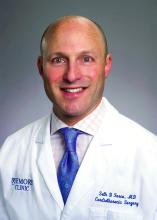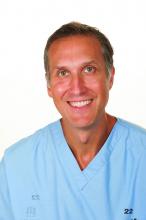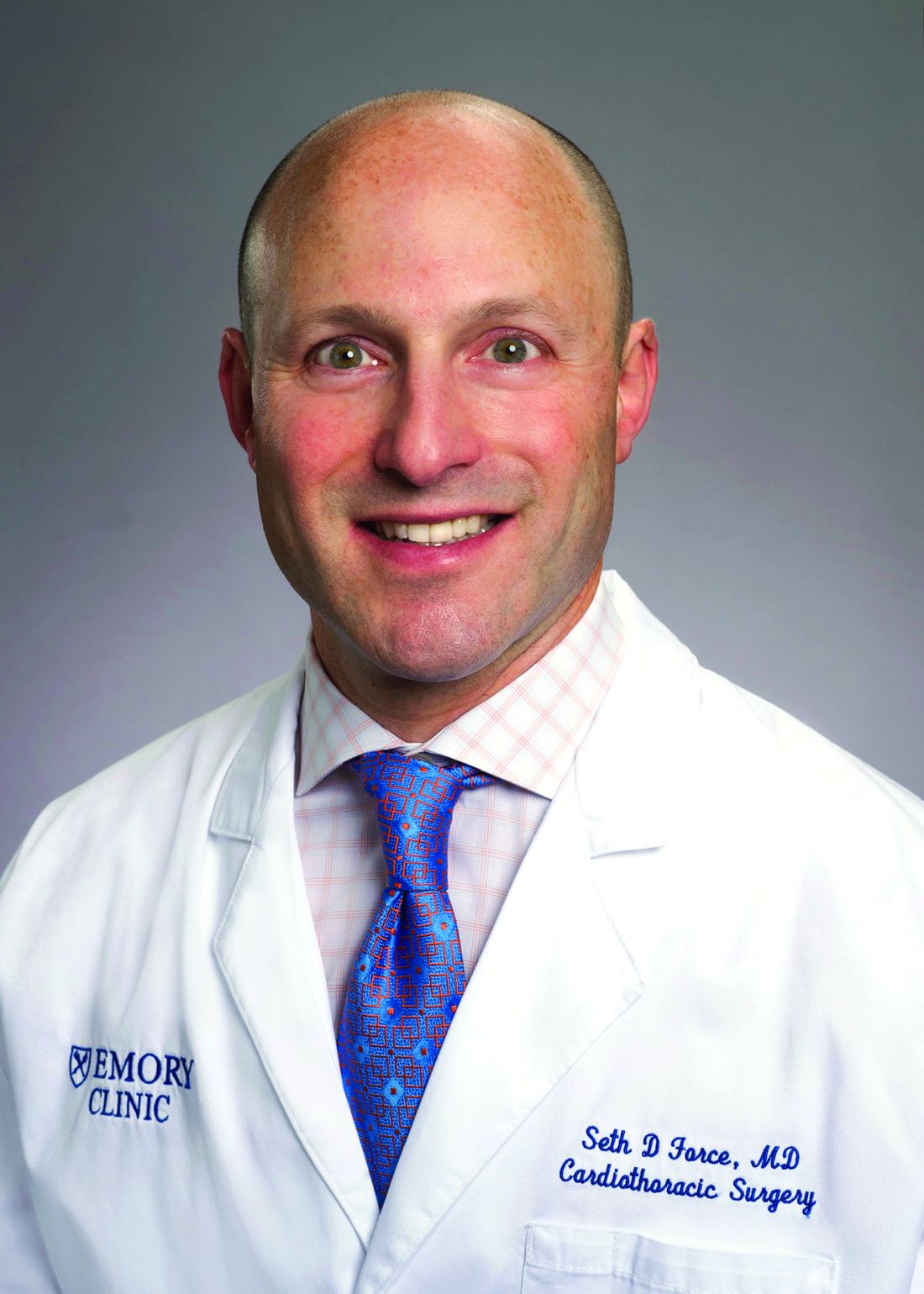User login
The most up-to-date surgical management for lung cancer, the mediastinum and pleura, and the esophagus, will be featured in Sunday’s full-day symposium “Thoracic Surgery 2017 – State of the Art.”
“We will cover not only standard practice and a lot of the major clinical issues that come up in general thoracic surgery but also discuss new developments and directions for thoracic diseases,” said Seth D. Force, MD, of Emory University, course co-chair. “It’s hard for everyone to stay up to date on everything, especially with a lot of the modern techniques and changes in treatment plans. Things are changing pretty quickly. Presentations by the leading experts in our field will help bring participants up to speed on the latest treatments for different thoracic diseases.”
The symposium will kick off with a presentation by Betty Tong, MD, of Duke University, on setting up a lung cancer screening program. “[Screening] has really become an important concept in the outpatient thoracic practice,” Dr. Force said. Other presenters giving talks in this section on solitary pulmonary nodule and screening will discuss who gets followed in lung cancer screening programs, management of screen-detected lesions, and diagnostic modality options for suspicious lesions. “There’s a lot of buzz around lung cancer screening as well as what to do with small nodules that are found in these screening programs – how to deal with them, what they mean and what’s the best surgical approach,” Dr. Liberman said.
The next section of the course, on controversial and high-risk patients with lung cancer, will feature presentations on how to define physiological high risk; evidence-supported use of sublobar resection, MITS and brachytherapy; state of the science for SBRT versus resection in clinical stage 1, and a pro-con debate on when surgery is indicated for patients with N2 disease.
The program will conclude with a series of talks on the esophagus, including exploring the limits of esophageal-sparing therapy for high-grade dysplasia and T1a adenocarcinoma; who is and is not a candidate for trimodality therapy in stage III cancer; minimally invasive esophagectomt, thoracoscopic esophagectomy and Ivor Lewis surgical approaches; and surgery for complex patients with achalasia, followed by a panel discussion.
“We really hope and expect this will be an interactive session with a lot of participant questions, feedback and back and forth discussion,” Dr. Force said. “Attending the session will allow surgeons to either set up or make sure they have a modern thoracic practice. It will help them ensure they’re providing the most up-to-date treatment and diagnostic options for their patients.”
The most up-to-date surgical management for lung cancer, the mediastinum and pleura, and the esophagus, will be featured in Sunday’s full-day symposium “Thoracic Surgery 2017 – State of the Art.”
“We will cover not only standard practice and a lot of the major clinical issues that come up in general thoracic surgery but also discuss new developments and directions for thoracic diseases,” said Seth D. Force, MD, of Emory University, course co-chair. “It’s hard for everyone to stay up to date on everything, especially with a lot of the modern techniques and changes in treatment plans. Things are changing pretty quickly. Presentations by the leading experts in our field will help bring participants up to speed on the latest treatments for different thoracic diseases.”
The symposium will kick off with a presentation by Betty Tong, MD, of Duke University, on setting up a lung cancer screening program. “[Screening] has really become an important concept in the outpatient thoracic practice,” Dr. Force said. Other presenters giving talks in this section on solitary pulmonary nodule and screening will discuss who gets followed in lung cancer screening programs, management of screen-detected lesions, and diagnostic modality options for suspicious lesions. “There’s a lot of buzz around lung cancer screening as well as what to do with small nodules that are found in these screening programs – how to deal with them, what they mean and what’s the best surgical approach,” Dr. Liberman said.
The next section of the course, on controversial and high-risk patients with lung cancer, will feature presentations on how to define physiological high risk; evidence-supported use of sublobar resection, MITS and brachytherapy; state of the science for SBRT versus resection in clinical stage 1, and a pro-con debate on when surgery is indicated for patients with N2 disease.
The program will conclude with a series of talks on the esophagus, including exploring the limits of esophageal-sparing therapy for high-grade dysplasia and T1a adenocarcinoma; who is and is not a candidate for trimodality therapy in stage III cancer; minimally invasive esophagectomt, thoracoscopic esophagectomy and Ivor Lewis surgical approaches; and surgery for complex patients with achalasia, followed by a panel discussion.
“We really hope and expect this will be an interactive session with a lot of participant questions, feedback and back and forth discussion,” Dr. Force said. “Attending the session will allow surgeons to either set up or make sure they have a modern thoracic practice. It will help them ensure they’re providing the most up-to-date treatment and diagnostic options for their patients.”
The most up-to-date surgical management for lung cancer, the mediastinum and pleura, and the esophagus, will be featured in Sunday’s full-day symposium “Thoracic Surgery 2017 – State of the Art.”
“We will cover not only standard practice and a lot of the major clinical issues that come up in general thoracic surgery but also discuss new developments and directions for thoracic diseases,” said Seth D. Force, MD, of Emory University, course co-chair. “It’s hard for everyone to stay up to date on everything, especially with a lot of the modern techniques and changes in treatment plans. Things are changing pretty quickly. Presentations by the leading experts in our field will help bring participants up to speed on the latest treatments for different thoracic diseases.”
The symposium will kick off with a presentation by Betty Tong, MD, of Duke University, on setting up a lung cancer screening program. “[Screening] has really become an important concept in the outpatient thoracic practice,” Dr. Force said. Other presenters giving talks in this section on solitary pulmonary nodule and screening will discuss who gets followed in lung cancer screening programs, management of screen-detected lesions, and diagnostic modality options for suspicious lesions. “There’s a lot of buzz around lung cancer screening as well as what to do with small nodules that are found in these screening programs – how to deal with them, what they mean and what’s the best surgical approach,” Dr. Liberman said.
The next section of the course, on controversial and high-risk patients with lung cancer, will feature presentations on how to define physiological high risk; evidence-supported use of sublobar resection, MITS and brachytherapy; state of the science for SBRT versus resection in clinical stage 1, and a pro-con debate on when surgery is indicated for patients with N2 disease.
The program will conclude with a series of talks on the esophagus, including exploring the limits of esophageal-sparing therapy for high-grade dysplasia and T1a adenocarcinoma; who is and is not a candidate for trimodality therapy in stage III cancer; minimally invasive esophagectomt, thoracoscopic esophagectomy and Ivor Lewis surgical approaches; and surgery for complex patients with achalasia, followed by a panel discussion.
“We really hope and expect this will be an interactive session with a lot of participant questions, feedback and back and forth discussion,” Dr. Force said. “Attending the session will allow surgeons to either set up or make sure they have a modern thoracic practice. It will help them ensure they’re providing the most up-to-date treatment and diagnostic options for their patients.”


